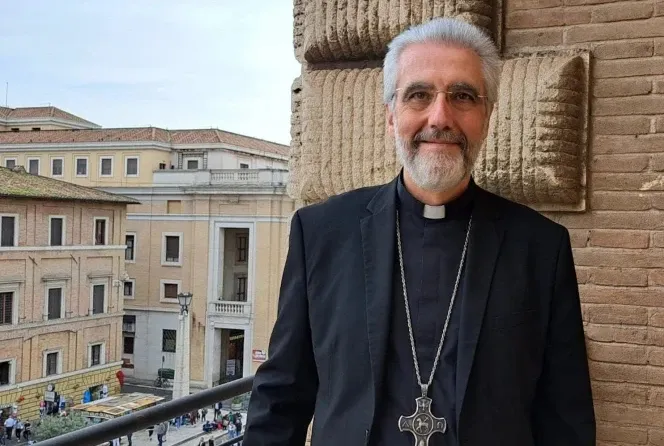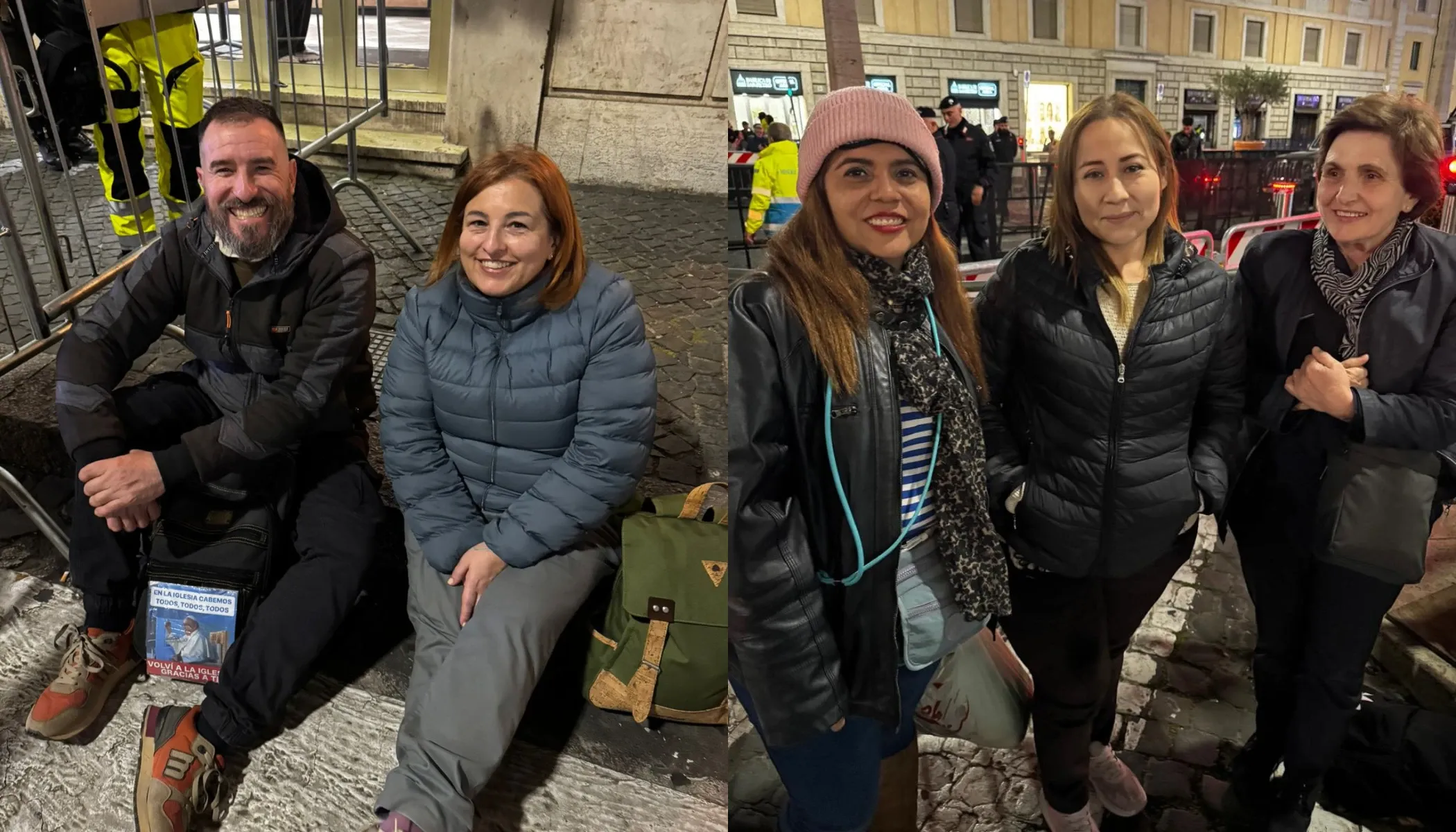Authority as service
Referring to the words of Pope Francis, he pointed out that “the model is not the pyramid, nor the sphere, but the polyhedron.”
“The bishop and the parish priest, in order to make decisions, have the duty to consult and listen in order to discern, such that that the participating bodies have to exist and function. They will then make the decisions that correspond to them by their ministry and they will explain the decisions taken.”
Marín insisted on the need to clarify the decision-making processes and co-responsibility, since there are issues “in which the decision corresponds only to the bishop or the parish priest and others that can be taken in other instances.”
However, “there is a need to clarify the decision-making processes and co-responsibility,” the bishop added.
(Story continues below)
“Authority in the Church must always be understood and exercised as a service. Likewise, it is important to keep in mind the principle of subsidiarity; matters must be resolved at the level closest to those concerned,” the synod undersecretary explained.
‘Nothing prevents women from holding office in the Roman Curia’
With regard to the participation of women in the Church, according to Marín, the document proposes, above all, “the need for women to assume their proper role in the Church, including participation in ministries,” noting that until recently, “surprisingly, lay ministries were open only to men.”
Marín clarified that the same applies to positions of responsibility, “which can be occupied by laypeople, whether men or women.”
“In the Roman Curia there are already women in the secretariat of some dicasteries and nothing prevents them from presiding over others in the future, as laymen already do today.”
The prelate said that in some places “women perform many pastoral and administrative tasks, as well as governance, and it is appropriate to pursue this direction further.”
Regarding paragraph 60 of the synod’s final document, he said it “also raises the issue of the diaconate, which is an ordained ministry and not a lay one. It is clear that there were deaconesses in the early Church. But was it an ordained ministry? What were their functions? Was it the same in all the local Churches? To further explore the issue, Pope Francis appointed two commissions. The work of studying it continues,” he noted.
In this regard, Marín emphasized that “it’s important to note that this does not mean access to the priesthood and the episcopate; only the topic of the diaconate is being studied, which is a degree of the sacrament of holy orders, but which, as the [Second Vatican] Council recalls, is not oriented toward the priesthood but toward the ministry (deacons are not priests, as are priests and bishops). The synod asks for further clarification,” he pointed out.
Liturgical celebrations as an expression of synodality
One of the paragraphs that received the most votes against it was No. 27 on “studying how to make liturgical celebrations an expression of synodality.” The proposal received 312 votes in favor (87.8%) and 43 against (12.1%).
“Given the importance of the relationship between liturgy and synodality,” Marín continued, “it is suggested that a study group be entrusted with the task of making liturgical celebrations more expressive of synodality.”
“In my view,” he continued, ”it refers above all to three lines of further study: how to strengthen communion, so that those celebrating are the community united in the risen Christ and not a sum of disconnected, unknown and solitary individuals; how to promote differentiated participation, avoiding considering ourselves mere spectators; how to involve all of us in the shared mission, in evangelization. In short, I believe that the key is in how to live and make present the love (caritas), which identifies us as Christians.”
‘Overcome the mentality of power and develop that of service’
The undersecretary also noted that the assembly asked for “clarification on what the criteria are for the selection of bishops and how the local Church should enter into the selection process.”
Along these lines, he indicated that it is “necessary to overcome the mentality of ‘power’ and develop that of ‘service.’ There is no doubt that the more closed in a group is, the greater the risk of elitism, which is why a greater involvement of the people of God is requested.”
However, he emphasized that there are practical difficulties, especially in large dioceses, where knowledge of possible candidates is limited. “Other difficulties we find in participation: only believers? Those who practice [the faith]? Everyone? Also in the way of conducting the consultation, avoiding election campaigns and pressure from organized groups.”
“The principle is clear: to broaden the consultation and allow for greater participation. But an in-depth study, proceeding calmly, is required. That’s why the pope has created a working group on this subject. Let us await its conclusions,” Marín indicated.
‘The deposit of faith doesn’t change and cannot change’
As for those who, “with goodwill, feared a change in doctrine, they have already seen that this is not the case. The deposit of faith does not change and cannot change. It’s a matter of going deeper into it, formulating its expression and developing it in the time at hand, as the Church has done throughout its history,” Marín affirmed.
“The synodal process arises from the action of the Holy Spirit and necessarily requires conversion of the heart. If not, we will understand nothing. The common thread that links the different parts of the document is, in fact, an invitation to conversion: called by the Spirit to conversion; conversion in relationships; conversion in processes; conversion in interconnectivity; conversion for the mission. For this, it is necessary that love be, truly, the common thread,” he concluded.
This story was first published by ACI Prensa, CNA’s Spanish-language news partner. It has been translated and adapted by CNA.
Almudena Martínez-Bordiú is Rome correspondent for ACI Prensa and EWTN.








